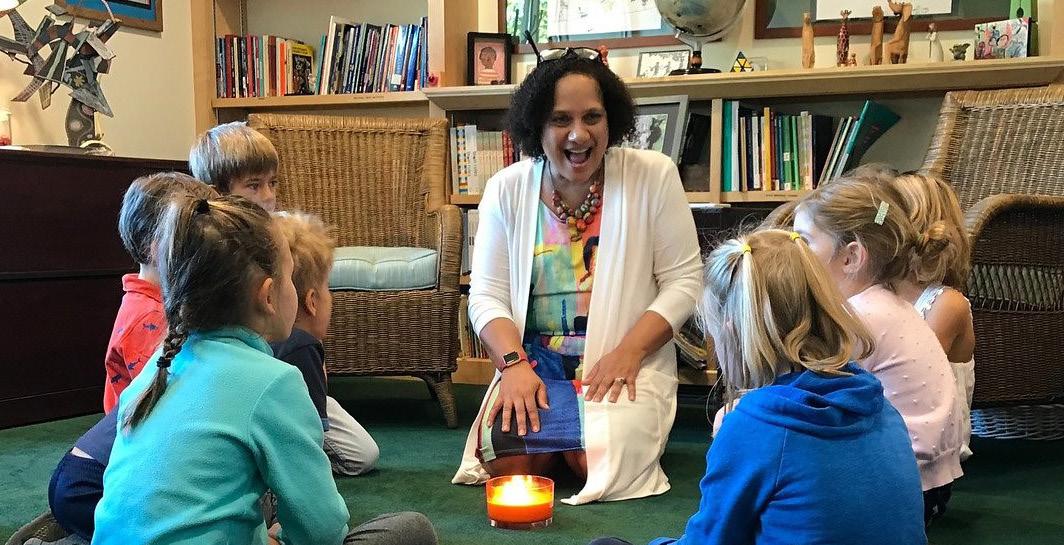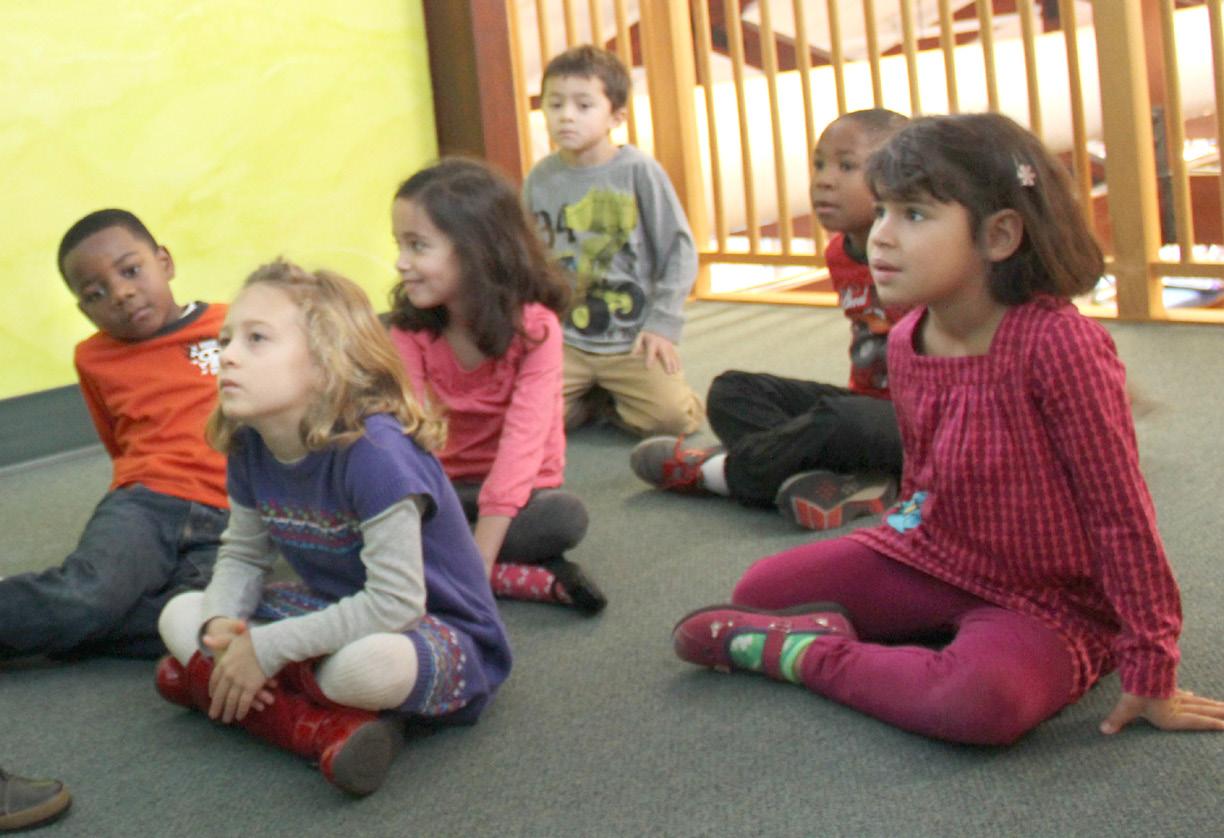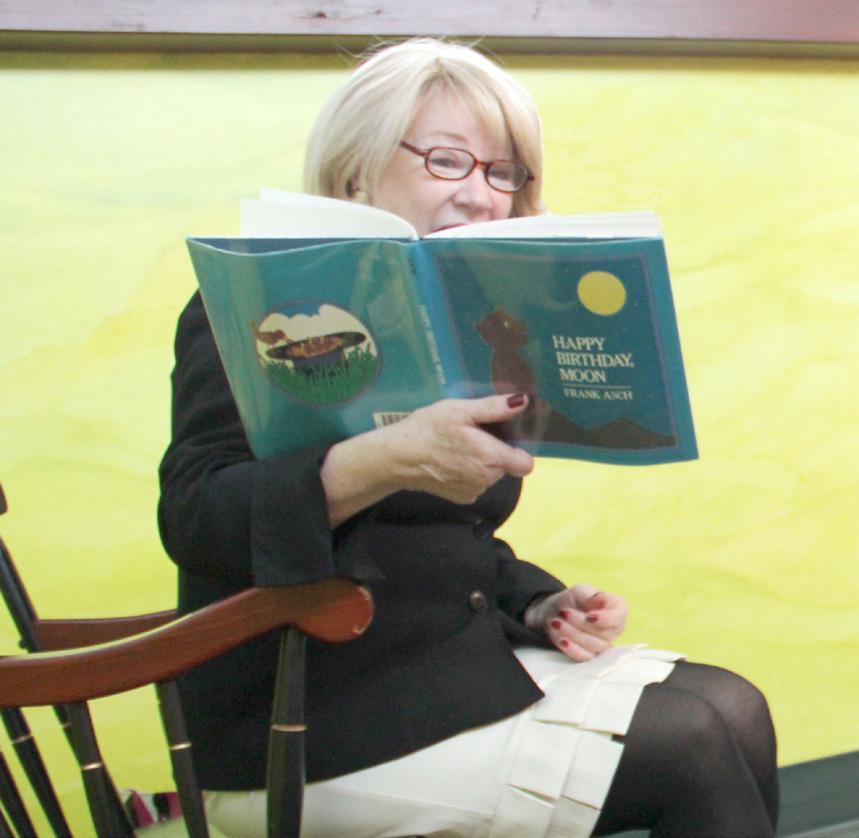
5 minute read
R E M I N I S C E
from Views Fall 2022
the supportive families and just the sense of coming home. Home was Beauvoir, and like you, I’m sure, I spent more hours there than at my other home.
CGW: I’ve always viewed you as one of my most influential mentors who certainly shaped my journey as a head of school. Who would you say are your mentors?
PC: I love the notion of mentorship because I think it’s a critical component, particularly for women, not only in the field of education, but across the board. When I began teaching, there were very few women in leadership positions. I enrolled in graduate school to remedy that scenario. I found for the first time in my life, great mentors in my professors; just what I needed at that point in time. But after some graduate degrees under my belt, I demanded mentorship from every supervisor I encountered: “You will be my mentor.” I would be remiss, however, if I didn’t say that my husband, Peter Branch, who was also a head of school, remains my best and most supportive mentor. I can’t imagine doing this job without incredible support all around and, boy, he did a great job of that.
CGW: I fondly remember receiving a little whisper from you wondering whether I’d be interested in one day pursuing a headship in independent schools. It started off as a whisper, then it became a little nudge. I really wasn’t sure. I remember initially saying, “There’s no way I would ever even contemplate taking all of that on my plate.” It wasn’t until you started pushing me into various aspects of leadership, whether it was advancement or admissions or the
NAIS conference or other institutes, that I realized that headship was a keen interest of mine. I can’t thank you enough for being my most important mentor. Do you have any special or fond memories of our relationship from the years that we spent together at Beauvoir? I have many!
PC: I remember one particular day, you were able to encourage a shy child (I can still see her face), support an exhausted colleague, and assure an anxious parent. And that was all before noon. I just marveled at that. I also appreciated that you were—and are— highly intellectual. You can apply theory to practice because you have such a keen understanding of child development. That just came through in everything you did. I am so, so grateful for getting to observe that, Cindi.
CGW: When you think back on some of your Beauvoir years, what are some of your fondest memories of the many faculty and staff who worked alongside you? I know the ones who remember you could list many!
PC: Well, the not-so-secret ingredients of Beauvoir’s success are the faculty and staff. I wish I could name all the remarkable individuals that create the spirit of Beauvoir, but that would take an entire publication in itself. When I remember my colleagues, I can see their playfulness at community meetings, pajama days, Halloween parades, and Global Studies events. I remember the care that my colleagues took in the food they prepared for students’ lunches, and the pride with which they cleaned and prepared our facility for learning. The thing I remember most is that every action this amazing group of people took was based on what we believed to be the best thing for students. Decisions weren’t made for faculty or parents or other schools, they were made for our kids. And that’s why I think our students thrive.
CGW: How would you define the portrait of a Beauvoir graduate? And what would you say are the hallmarks of a Beauvoir education?
PC: I think if there’s one overarching fact, it is that not only are our students good academicians, they’re good people. I can remember when our students would go on a field trip, the docent would say, “Where are you all from? Not only are these students smart, they’re kind to each other. And they’re respectful of the person leading the discussion.” When they apply to other schools, those qualities are what other schools comment on. They’re going to have different skill sets up and down the board forever the rest of their lives, but they are going to be the kinds of people that we hoped they would be.
CGW: If you could return to Beauvoir (and you are welcome—those doors are always open!) and take part in a special hallmark tradition or experience that you remember with fondness, what would that be?
PC: I will say one that’s so obvious. It is Closing Chapel. When you stand there at the very front of the Cathedral at the Nave and you watch your students walking down the aisle, and you watch your colleagues walking down the aisle with your students, I never failed to get emotional about that. It’s certainly the grandeur of the place, the importance of the ceremony, but it’s really seeing everybody that makes that wonderful school together in one place. That’s a ceremony I love.
CGW: You were able to accomplish oodles and oodles of things in your tenure at Beauvoir, Paula. What are some of your accomplishments that you hold the most pride in?
PC: I don’t say this lightly, but the ground and the environment of Beauvoir was so fertile for ideas. I don’t think I ever worked at a place where people were so eager and ready to take things to the next level. I say that only to say that my accomplishments weren’t really mine. They were really everyone’s. Most of the best ideas and practices that we followed came from faculty.
I guess though, if I were to think about the thing that I’m so proud of all of us for creating, that is a school culture. I think it’s everything to create a culture where colleagues nurture and support each other, where families feel safe, where children feel safe, and where most of us as adults couldn’t wait to get there most days. I was fortunate enough to work with people who thought that was important, too.
CGW: My final question sort of wraps up two questions in one. You have always been such a wise source of counsel and advice and guidance for so many. If you were asked today to give a word of advice to parents or caregivers, as well as the faculty and staff, what would those words be?
PC: You are going to know this because we sing from the same song book, and that is to let the children be children. That is sometimes the hardest message of all, it seems, isn’t it? I also think that there’s a very special way of encouraging children. I’m going to recommend a book that I’ve recommended forever. It’s been around a decade now. It is a book called Mindset. We read it as a faculty when I was there, Cindi, but I suspect there are faculty now who haven’t read it. But it really says everything there is to say about helping your children and/or your students be the successful and happy people that we want them to be. Developing that growth mindset, rather than the fixed mindset is the key to success for them, and ultimate satisfaction and happiness. ✿












